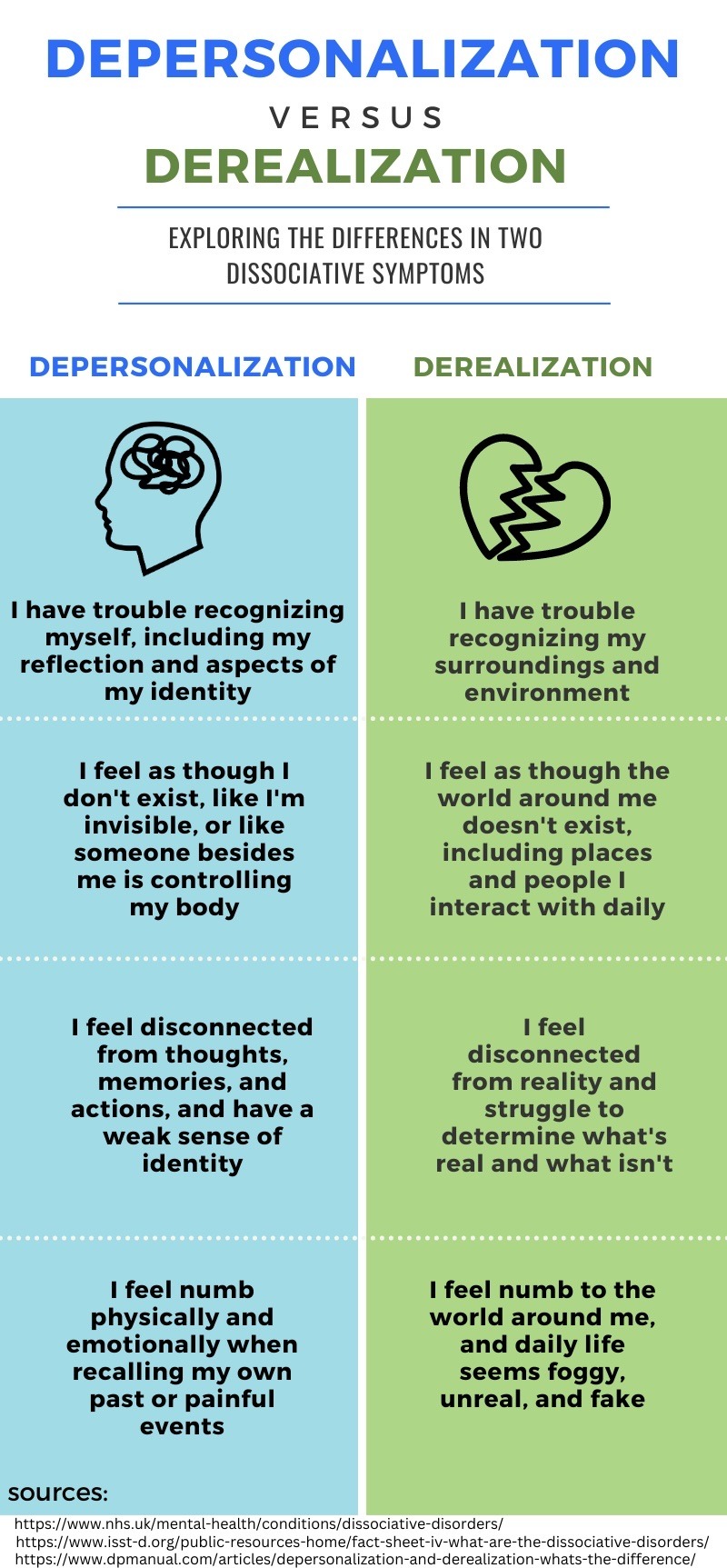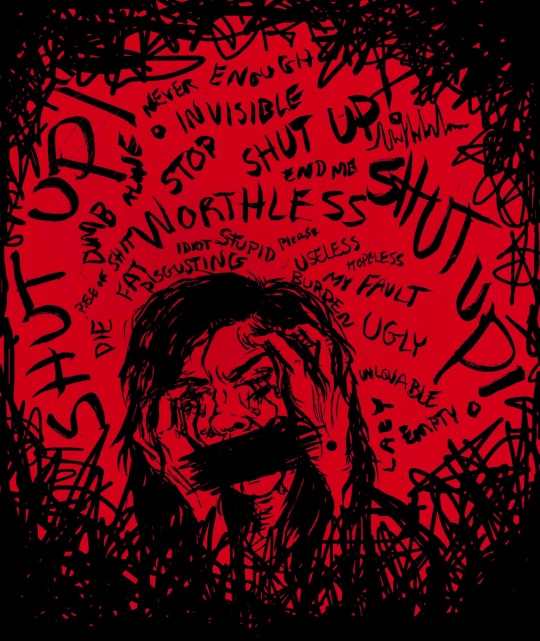#dissociative disorders
Text
poor memory is a huge deal and i wish people wouldn't diminish it by saying "oh yeah i can't remember what i had for breakfast lol."
i can't remember the first 10 years of my life. i can't remember entire days, weeks, months at a time. i can't remember entire people, i can't remember names or faces. i can't remember when things are scheduled for, my calendar app on my phone is booked to the max with reminders and task checklists. i can't remember when i moved into what home when, i can't remember important milestone dates like when i got or lost certain jobs, or when i started a new hobby.
that's what i mean when i say i have poor memory. poor memory is so scary for the person who has it. it's not a quirky thing, everyone forgets small details. memory problems are scary because you can go through entire events or days with no memory, or plan for things in the future that you can't recall ever even looking into or scheduling. it's not a funny haha kind of thing, it's serious, and it affects a lot of people in very unavoidable ways.
not being able to plan for appointments or work schedules, not being able to remember people's names or faces, not being able to recall whether or not you were present for something or whether or not you met someone, not being able to keep track of what's happening on what dates and losing track of items because you can't remember where you put them are all very real problems, and anyone dealing with them deserves to be taken seriously, and not diminished when they choose to speak up about it.
#neurodivergence#mental health#adhd#did#ptsd#mental illness#schizophrenia#ocd#anxiety#generalized anxiety disorder#depression#bipolar disorder#bpd#borderline personality disorder#neurodivergent#autism#mental health awareness#dpdr#osdd#dissociative disorders#dissociative#depersonalization derealization#other specified dissociative disorder#memory problems#poor memory#learning disorders#chronic fatigue#neurological disability#neurological disorders#traumatic brain injury
7K notes
·
View notes
Text
i feel like we don’t always talk about the smaller ways that having a dissociative disorder (and not being “out” about it) can really disable a person— i’m in a choir, and idk how to explain to the musical director that SOMETIMES i am a soprano and have no trouble hitting high notes while other times i feel like i physically cannot sing that high. or how sometimes my guitar feels like an extension of my body but sometimes i don’t even remember how i’m supposed to hold it properly. or in art therapy when i only sometimes have access to my adult level of artistic skill while sometimes i have the skill level of a five year old. my dissociative disorder very much disables me, and this is something i don’t see people talking about outside of the ways that PTSD disables those with dissociative disorders. what i mean is that sometimes i do not have the ability to do very basic tasks. dissociative disorders are developmental disorders, and i am very much developmentally disabled much of the time.
i don’t plan on ever being publicly out about my dissociative disorder in a non anonymous setting. i have a hard time even talking about my parts in therapy even to the clinician that diagnosed me with DID. it feels unbearably vulnerable and not safe to tell people about my parts. i feel like we’re seeing more and more people on tik tok start talking publicly about their DID, and while that may be very helpful for them, i honestly can’t imagine ever being fully out with it like that. keeping it secret is what has kept me safe, it is how i survived the last twenty years of my life. my experience with DID also does not line up with most of the DID content i’ve seen online— and i don’t mean this to invalidate those whose experiences are different than mine, it’s just that it can feel really lonely and isolating to have a dissociative disorder that doesn’t fit with the worlds preconceived image of what a dissociative disorder looks like. this is part of why i typically just say that i have dissociative disorder instead of DID.
tldr: dissociative disorders can really impair basic functioning and i feel like people forget that when they focus so much on the parts of DID that are more sensationalized in the media.
#i hope someone out there relates to this#DID#dissociative identity disorder#actually dissociative#dissociative disorder#dissociative disorders#did osdd#osdd#actually traumatized#did system#actually did#my words#mine
1K notes
·
View notes
Text

(Image ID:) a blue, green, and white graphic titled “Depersonalization versus Derealization: Exploring the differences in two dissociative symptoms” organized in two columns. The left hand column is titled “Depersonalization” with a stock icon of a head with a scribbled like for the brain. The right hand column is titled “Derealization” with a stock icon of a broken heart.
The statements in the “Depersonalization” column read: “I have trouble recognizing myself, including my reflection and aspects of my identity,” “I feel as though I don’t exist, like I’m invisible, or like someone besides me is controlling my body,” “I feel disconnected from thoughts, memories, and actions, and have a weak sense of identity,” and “I feel numb physically and emotionally when recalling my own past or painful events.”
The statements in the “Derealization” column read: “I have trouble recognizing my surroundings and environment,” “I feel as though the world around me doesn’t exist, including places and people I interact with daily,” “I feel disconnected from reality and struggle to determine what’s real and what isn’t,” and “I feel numb to the world around me, and daily life seems foggy, unreal, and fake.”
Below these columns is the word “sources:” with the following links:
https://www.nhs.uk/mental-health/conditions/dissociative-disorders/
https://www.isst-d.org/public-resources-home/fact-sheet-iv-what-are-the-dissociative-disorders/
https://www.dpmanual.com/articles/depersonalization-and-derealization-whats-the-difference/
(END ID)
This infographic was made by us, Halberd (@dreamlandsystem). Feel free to save and share as much as you’d like. Program used: Canva. Image credits: Pixabay. This infographic explores our personal experiences with DPDR, with additional sources for further reading.
#dpdr#depersonalization/derealization disorder#depersonalization#derealization#dissociative disorders#dissociative symptoms#dissociation#dissociative identity disorder#other specified dissociative disorder#osdd did
1K notes
·
View notes
Text
I will say 'I'm fine' then turn around and have a whole dissociative disorder
604 notes
·
View notes
Text

POV your trauma memories start to add up and you start to put together a timeline
#dissociative identity disorder#dissociative system#actually did#actually dissociative#did#actuallydid#did memes#did system#actually cptsd#dissociative alters#dissociative disorders#dissociative amnesia#ptsd memes#cptsd memes
2K notes
·
View notes
Text
"if you don't show your diagnosis you don't have x disorder/illness" sure buddy let me go through the hell of getting diagnosed just for this purpose, and if I already am, let me just post my personal information on the internet this seem so not dangerous and not bad advice thank you so much
What do you mean I can't get diagnosed officially with a severe dissociative disorder because it would be told to my parents and also make it near impossible to get a loan? What you mean doctors could refuse to treat me because they think I'm "crazy" and therefore making up symptoms? What do you mean if I put my disability diagnoses on the internet I would dox myself? What do you mean they're not in English so the assholes wouldn't even understand?????? Yeah I guess that means im faking! yippee my physical and mental pain are totally gone and I don't need my wheelchair anymore!!
#eliana talks#cripple punk#cpunk#ableism#cripplepunk#chronic pain#chronic illness#dissociative identity disorder#did system#dissociative disorders#rant#assholes with accounts made with the purpose to be assholes#discourse#fakeclaiming cw#fakeclaming discourse
91 notes
·
View notes
Text
feel free to add whether ur like OSDD-1a, 1b, P-DID, DID, polyfragmented, recently discovered, or any other notable distinction
#sysblr#osdd#did#plural#system poll#polls#neurodivergent#dissociative disorders#questioning system#<- I'm questioning and I'm wondering if the small small alter count I seem to have is like. typical at all#I post
144 notes
·
View notes
Text

#tw ed#my art#okay to rb#was having a moment and scribbled this out#my head is a mess#vent art#self hatred#anger#rage#depression#anxiety#trauma#bpd#ptsd#cptsd#dissociative disorders#mentally ill#actually traumatized#emotional abuse#verbal abuse#actuallyabused#ventcore#borderline personality disorder#red theme#emotional
269 notes
·
View notes
Text
Want to be part of a group blog on how to write neurodivergent characters?
[Large text: "Want to be part of a group blog on how to write neurodivergent characters?"]
I've found Tumblr blogs on writing physically disabled and POC characters, but nothing specifically for neurodivergence.
Maybe there is something I just haven't found yet, but even if so, I think the most resources the better.
So, hi! I'm Amethyst — amateur writer and neurodivergent, and now looking for people to help me out with this project.
I could try this on my own, but I would rather have other neurodivergents with me (especially with different conditions from mine)
Does anyone want to help me make a change?
#neurodivergence#neurodiversity#neurodivergent#calling all neurodivergents#calling all writers#writers on tumblr#writing community#writeblr#schizospec#personality disorders#anxiety disorders#neurodevelopmental disorders#mental illness#autism#adhd#aspd#npd#bpd#ocd#ptsd#dissociative disorders#did osdd#writers#writing#didn’t know how else to find people#help me out#i have an idea#this would combine my special interests#let's make a change#dms open
36 notes
·
View notes
Text
Dissociative disorders are the psychological equivalent of a scar.
It is not something that anyone who truly has it ever wanted. It was not voluntary and it can be a bitter reminder of the violence that created it.
It means that a child went through pain that no child should ever go through, pain so severe that it left a permanent mark on them.
But above all else, it is evidence that the child survived. Dissociation is a safety mechanism, and a system is all the scars left behind, holding the body together and proving that they are still alive to bear it.
Our system is proof that somebody loved that child enough to keep them alive, even if that person needed to be inside their own head.
That alone is proof enough that they deserved to survive. They did not deserve to be hurt; no child does. But we deserve to survive.
We are the result of trauma. We are the evidence of survival.
1K notes
·
View notes
Text
"it's really hard to get a diagnosis for dissociative identity disorder, which means it's fake." no, what that means is that the vast majority of diagnosing psychiatric professionals (at least in America and Canada) are not trained at all on dissociative disorders and did not receive enough training in trauma therapy to be able to recognize the signs of DID.
we were diagnosed 3 years after we originally tried to seek help for it, only because we were lucky enough to find someone who had sought the training and did the research. it has been confirmed since by several other professionals who have specifically gone through the training. it can and does happen, but the reason it's hard is because us dissociatives can't match up easily with the professionals that know jack shit about it.
that's the problem. a lack of competent providers and ways to get dissociative patients to see the ones that exist.
#mental health#dissociative identity disorder#actually dissociative#did#osdd#dissociative disorders#osdd 1b#dpdr#mental illness#neurodivergence#neurodivergent#ptsd#mental health awareness#trauma#our writing
488 notes
·
View notes
Text
I saw someone learning about their own dissociative tendencies and taking the DES-II (Dissociative Experiences Scale) test as a first step in seeing if they want to really dig in and learn to navigate their experiences.
It's only 28 questions, so it can't cover everything -- and some of the terminology it uses is a little outdated. Even so, it's interesting and useful and can be helpful even when your answers are uncertain.
If there are others with (un-dx'ed, self-dx'ed, pro-dx'ed, etc.) anxiety disorders, PTSD/CPTSD, BPD, DID, non-plural dissociative disorders, non-traumagenic plurality, autism, ADHD, etc. who want to check out their dissocation levels as a first step toward further exploration or as a confirmation of a diagnosis or just for fun, I recommend giving it a try. It shouldn't be taken as an official professional diagnosis or the final say on your experiences, but it might offer some perspective of some kind.
#dissociative experiences scale#dissociative disorders#plurality#neurodivergencies#neurodiversity#DID#endo safe#ptsd#bpd#anxiety disorders#btw#I got 42.5#the average for people with plurality-specific dissociative disorders#it's between 36 and 46#so my self-dx and therapist confirmation#have been reaffirmed by this test
187 notes
·
View notes
Text
friendly april fool’s day reminder to not prank anyone who suffers from psychosis. they already have a very fragile connection to reality, they don’t need you making it more difficult for them.
#mental health#mental health awareness#mental health support#mental health reminders#coping#positivity#reminders#therapy#wellness#kindness#psychosis#psychologists#therapists#mental wellness#depression#anxiety#trauma#dissociative disorders
19 notes
·
View notes
Text
reblog if your short term memory AND your long term memory are both shit and wildly selective
#my brain will pick 1 event per year and remember that#and then anything else is just static#memory issues#memory loss#dissociative disorders#trauma disorders#cptsd#ptsd#trauma related memory loss
675 notes
·
View notes
Text
“Oh thank goodness I don’t have THIS kind of trauma :)”
Trauma holder/gatekeeper:

(Ps. I hope nobody has done this before)
#dissociative identity disorder#dissociative system#actually dissociative#actually did#dissociative alters#did#actuallydid#dissociative disorders#did memes#did system#system jokes#dissociative identity disorder memes#tw abuse mention
885 notes
·
View notes
Text
Dissociative Amnesia
Our thoughts and experiences, and some resources to learn more.
Hello everyone! We’ve gotten a few asks recently wondering about amnesia in dissociative disorders, so we’ve decided to put this post together. We will cover as much as we can about amnesia, and talk about our experience with it.
What is amnesia?
Amnesia is partial or total memory loss that is more severe than common, every day forgetfulness. People may experience amnesia for a wide variety of reasons, such as experiencing a head or brain injury, being inebriated, having an illness or disease that affects the mind, lack of sleep, and extreme stress/fatigue/brain fog. Amnesia (specifically dissociative amnesia) is a really big part of many dissociative disorders (with the exception being OSDD-1B). In dissociative disorders, alters may experience full amnesia (blackouts) or partial amnesia (greyouts).
What are blackouts?
A blackout is when a person or alter experiences a jump in time, or finds that they cannot recall key events from the past. Their memories may feel fragmented, incomplete, or literally “blacked out.” Coming back from a blackout can be overwhelming, scary, and disorienting.
For us, blackouts look like: seemingly “snapping awake” suddenly with no recollection of what we had been doing. Coming to in odd places, like the grocery store or the park or the library, with no idea how we got there or what led up to that point. Feeling like we are jumping forward in time (it’s Monday today, but I blinked and it’s Thursday now). Large gaps in memory, especially memories from our childhood. Fragments of memories may remain as factual information (EX: “I know we went to the store yesterday, but I don’t remember anything we bought or any of the details”), or there may be no lingering information at all (EX: “I can’t remember what happened yesterday and there’s food I didn’t buy in the fridge”)
What are greyouts?
A greyout is an experience of partial amnesia, and the term covers a broad range of experiences. It may mean that a particular aspect of a memory was forgotten, or that you feel emotionally, physically, or otherwise detached from a memory. The memory may exist, but it feels hazy or incomplete when you try to recall it.
For us, greyouts look like: feeling emotionally or physically detached from memories. Able to recall the past but it seems shaky, foggy, hazy or unclear. Retaining some details in memories but not others. Memories feel like a film, or like something that we heard about in a story, but not something that actually happened to us.
How can I tell the difference?
Telling the difference between blackouts and greyouts can be quite tricky! In general, for our system, if we’re able to recall events with some clarity, there isn’t any amnesia. If we can recall only pieces, or feel like the memory isn’t ours at all, it’s a greyout. If our mind is just blank regarding a certain memory, or we can only recall what others have told us, rather than the events themselves, it’s a blackout.
Can I experience amnesia without knowing it?
Yes, and we actually thought we had a pretty good memory before learning about our dissociative disorder and the amnesia that comes along with it! This is because our mind tends to fill in the gaps that it can’t explain or understand. These pseudomemories, or projections, led us to believe our memory was healthy and normal. We’ve since learned that many of the memories we took for granted were just projections from our brain trying to fill in gaps and help us function to the best of our ability. It’s something we had been oblivious to for decades, but at this point we are very aware of how unstable and unreliable our memory is. It is a part of having a dissociative disorder!
Can dissociative amnesia heal/Can my memory improve if I have amnesia?
We think so, yes! Our therapist has assured us that memory can be repaired and healed with treatment and time. Patience and self-compassion can both aid in this process! We ourselves are trying to heal, and our hope is that as our system becomes more integrated, we will be able to recall more memories and recover details as a result. It is a difficult process though, and one that we are actively pursuing through therapy! Some may be able to heal their dissociative amnesia without therapy, but for us, having outside help and a support team is essential to our healing journey.
Sources/Links to Learn More:
youtube
Please feel free to reach out to us if you have any further questions, or to share corrections or concerns! Thank you so much for reading, and have a great day!

(Image ID:) A pale orange userbox with a cluster of multicolored flowers for the userbox image. The border and text are both dark orange, and the text reads “all plurals can interact with this post!” (End ID.)
#amnesia#dissociative amnesia#blackouts#greyouts#dissociative disorders#complex dissociative disorders#dissociative identity disorder#did osdd#long post
70 notes
·
View notes